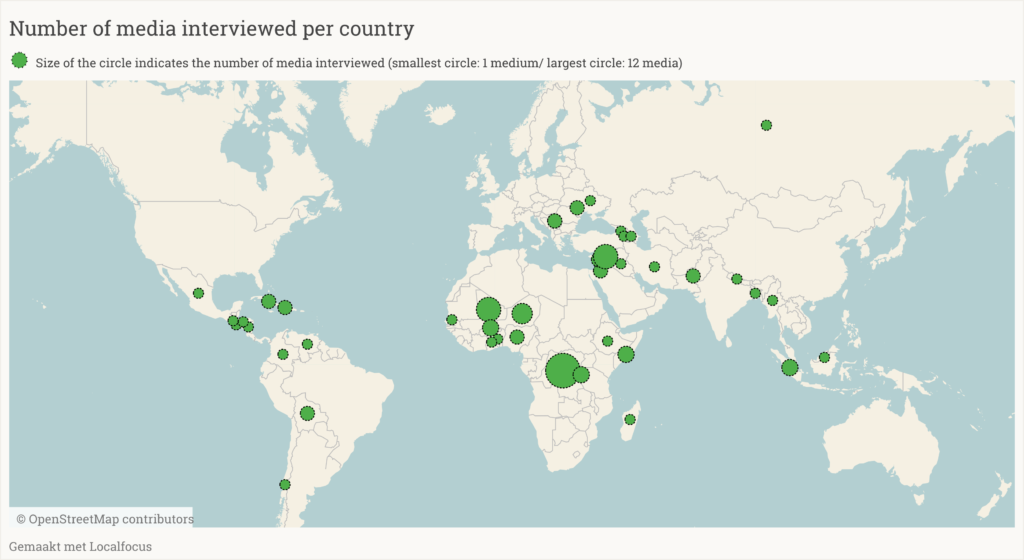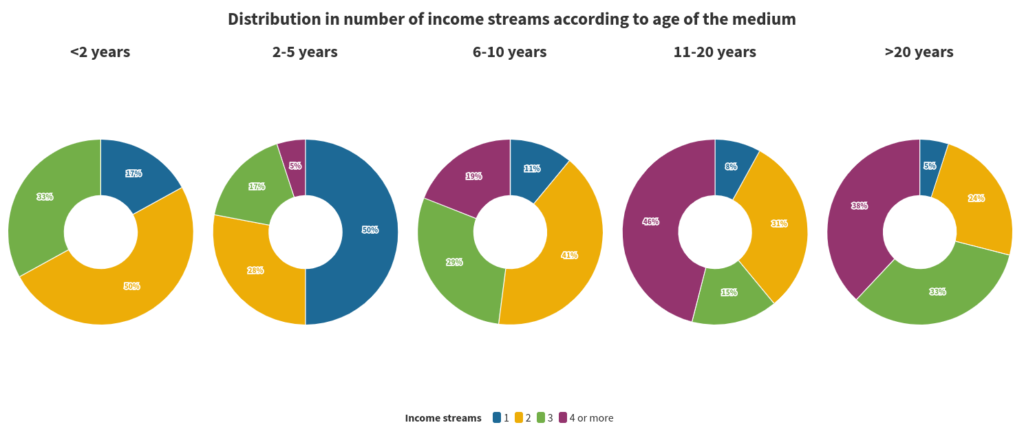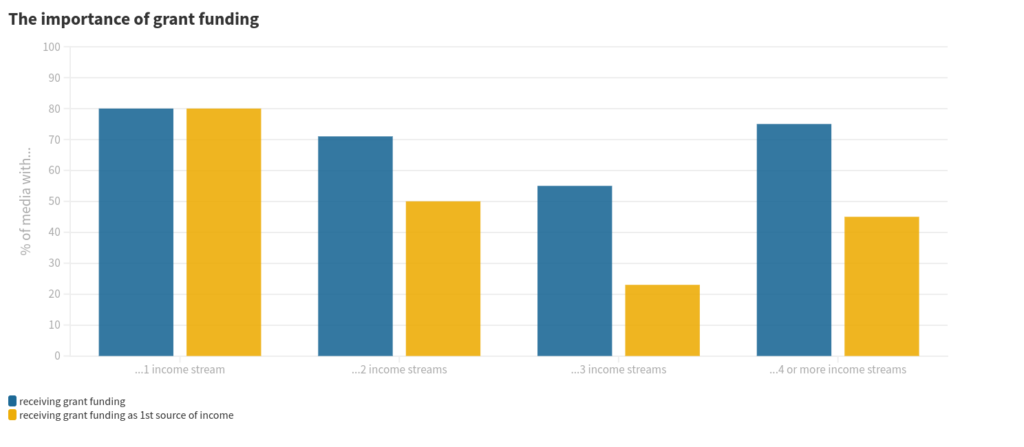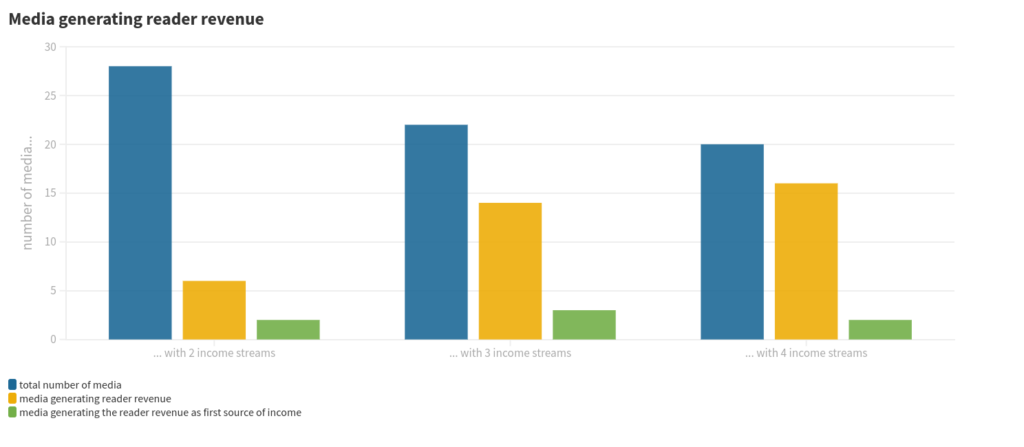Struggling to survive, media and media support organisations alike are trying to discover and share trends, tips and tricks that can support media in developing their business models. While the struggle to survive is global, much of the attention in publications focuses on models from Europe or North America. This leaves media in more challenging economic or political environments wondering whether lessons learned and case studies are applicable to them. Free Press Unlimited conducted a study in 2019 and 2020 that consists of data collected by interviewing media from exactly these contexts, around the following research question:
Which environmental factors and characteristics of independent, small to medium sized public interest media influence their income model?
For this research, 84 media from 33 countries were interviewed about their business models.

Main findings
- The media in this research, all thus far successful in maintaining themselves, are in a constant process of diversifying their revenue streams further. Generally speaking, the longer a medium exists, the more income streams a medium has. This shows that diversification of income models take time and patience.

- Donor funding is a very important source of income, even within diversified income models. Media that do not receive any donor funding are generally either start-ups (less than 2 years old) are solid, long standing media houses (founded more than 20 years ago) that have a print edition or also broadcast on television.

- Advertisement income is also still a very important source of income; a large majority of the media generate some income through advertisement. Even though digital advertising generates much less revenue than print advertisement once did, advertisement income is still a welcome contribution to the annual budget of media.
- Reader revenue is an important upcoming revenue streams in many contexts. However, it hardly ever is the first source of revenue, and generally becomes part of already diversified income models (three revenue streams or more).

- Across all the challenging contexts, media struggle to sustain themselves financially. In low income countries, and countries with a very bad press freedom status, growth or income diversification are not easy – almost impossible – to accomplish.
- Media themselves generally do not link their financial well-being to the diversification of revenue streams. Rather, they value stable and diverse partnerships (with funders) and a trusted relationship with their audience. Success of media is often attributed to a break out moment (such as a prize or a story that went viral) or the quality of the content. Specifically, reputation and visibility are considered very important to a solid medium.
- Digital only media appear to be more robust than other media types; they assess their own financial status comparatively more positively than other media. This seems to indicate that that print media and (community) radio, even those with parallel digital channels, are (unsurprisingly) struggling more. From a media development perspective this is a great concern, since in many contexts audiences can simply not be reached through digital channels (only).
Conclusion
Across the board, media will be in need for grant funding, as well as support for business model development. Even media in the comparatively less challenging environments will need to continuously update their business models. A lot of flexibility and resilience is required to survive while developing a diversified income model over the course of many years, a long period for which continued grant funding is very often required. Even the media who consider themselves doing financially relatively well, or better than before, indicate that it remains complex and difficult to generate sufficient revenue. Well-off media can be easily disrupted when one larger partnership ends or the country’s economy or press freedom status takes a step back. Providing core funding would allow media to continue their operations as well as appropriating resources to business management.
